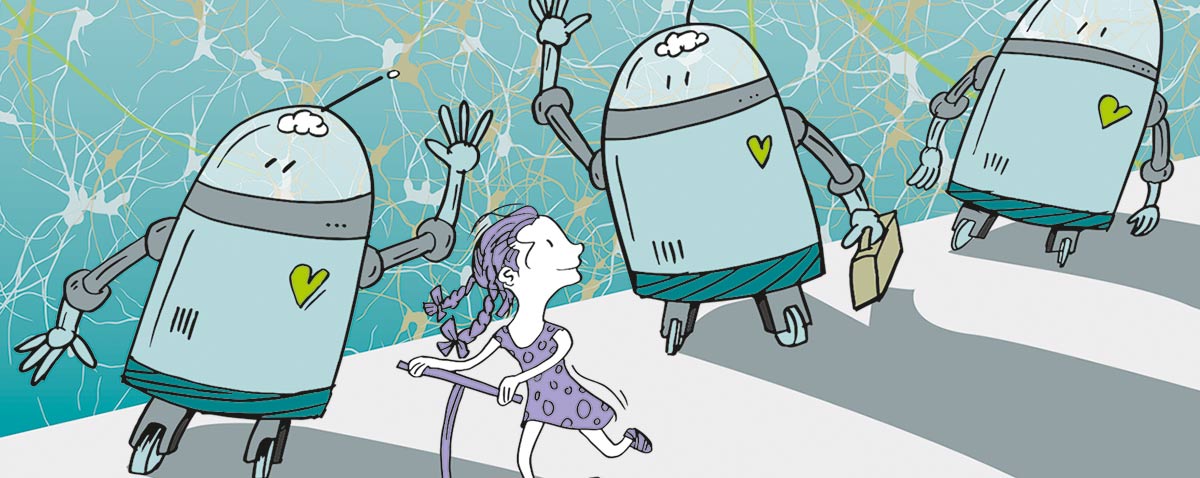Interview with American science fiction writer Nancy Kress: "Any radical new technology is always frightening"

Hi, Geektimes! For the spring holiday of March 8, I offer you a translation of an interview with the owner of the awards “Hugo” and “Nebula”, the author of the NF works - Nancy Kress.
The Internet of Things is rapidly turning science fiction scripts into reality: some works by Dick, Gibson, Asimov and many others can already be read as corporate information documents. What are the most fundamental changes we have encountered and what does it mean to be a science fiction writer in this situation?
There are two fundamental changes in science that have already begun to transform our world, and will do it even more in the coming decades - this is the Internet and advances in genetic engineering. These phenomena have a profound effect on our society and its policies. The Internet has made possible the organization of revolutionary groups, the expansion of criminal activity (for example, the Silk Road exchange), added more transparency to our life, but reduced privacy, made us more vulnerable to cyber attacks, and even natural phenomena such as solar flares can now break the usual the course of things. One powerful EMP (electromagnetic impulse) in the right place, no matter planned or cosmic - and the whole world society may suffer.
')
Genetic engineering has already changed the drugs that we use and the crops we grow, to a much greater extent than most people imagine. Due to the selective implantation of human embryos in reproductive medicine clinics, we have a small, but non-zero impact on human evolution. I believe that this phenomenon is doomed to growth in the future, as soon as offshore centers grow bolder and begin to experiment with human tissue. If it brings benefits - and we already know how it is potentially beneficial - genetic engineering expects growth. This is not to say that it is bad. Perhaps genetic engineering will be the only way we can feed the growing population of the planet.
This means — as with any other change — shifts within and between societies, with regard to who has the power and means of managing resources. For SF writers, this is just a bonanza. Science fiction (at least, the genre of fiction in which I write) is built on science, and the faster scientific progress occurs, the more is the array of ideas for creativity.
NF writers rarely describe the emergence of artificial intelligence as a success, but very often AI is seen as the first step on the path to apocalypse. Today, the vision of intelligent, but vicious machines towards humanity is widespread. And this is despite the fact that most robotics experts see no reason for fear, because we will not get a real AI in the next decades, and perhaps even centuries. Why are we in fear of our own innovation?
There is a double answer to this question. First, people have always feared fundamentally new technologies; in the nineteenth century, the Luddites fought against these “evil machines” that fundamentally influenced their world: a speech about textile weaving machines. People are suspicious of new things, sometimes quite reasonably, but over time this effect diminishes. I remember how my grandmother protested against the toasters: “They can electrocute you!”. But over time, she humbled herself and used them.
Secondly, people are afraid of AI, because fiction too often portrays them negatively; Consider, for example, the bloodthirsty and ruthless robots of the recent film Ex Machina . The authors do this because they need conflict for a good story. Nevertheless, the real scenario can be more optimistic, and in this I agree with robotics experts, who assure us that there is nothing wrong with robots - at least in the short term.
Looking at Richard Branson or Elon Musk, Heinlein comes to mind “The Man Who Sold the Moon”, a classic story about a businessman who commercialized space flights. Will we finally enter the space age?
Of course, yes, unless we first explode ourselves, or in some other way do not destroy the planet, so that we will need all the resources for simple survival, or we will not spend all our abilities to fight each other. Musk and Branson seek space exploration: a space with potentially huge profits. Profit is a powerful motivation for action. I am optimistic about future space travels - now they are much more real than, say, twenty years ago. However, even if I had the opportunity, I personally would not have gone into space. It hurts me even on a roller coaster. And in fact, I really like it here on Earth.
Source: https://habr.com/ru/post/371899/
All Articles